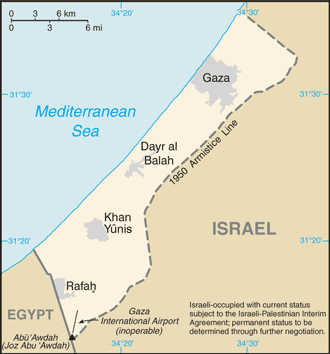Do Americans have a God-given constitutional right to own guns?
Do guns make us safer?
Is there a difference between the gun violence perpetrated at Columbine and the gun violence in West Baltimore?
What can we do about it? What about the NRA?
These (and other) questions kept the 90-minute program popping.
Saint Ignatius Catholic Church in Baltimore organized a panel discussion tonight — Guns, Freedom & Human Dignity — with four speakers who were clearly knowledgeable and articulate on the subject.
Bishop Denis J. Madden, the Auxiliary Bishop of the Archdiocese of Baltimore, is a licensed clinical psychologist in both Maryland and Washington, D.C., and leads the Baltimore monthly “Prayer Walk for Peace”. He shared his experience working with violent offenders who resorted to guns in their anger because they had very little self-control. 40% of all guns sold in the U.S. are by private dealers with no background checks. The U.S. Conference of Catholic Bishops has been calling on Congress to enact gun control for many years.
The second speaker was Joshua Smith, an Urban Grassroots Baltimore Community Developer and the Director of Intentional Living at the Gallery Church in Baltimore. As an activist, Joshua has worked tirelessly to unite the city of Baltimore during the recent riots, and in the months since. He works with and mentors inner city youth, while helping them with life and occupational skills. He made the discussion very personal.
When he was only 5 years old, cocaine was exploding in the community along with gun violence. The police came to Joshua’s school to teach the students how to dodge bullets with a zig zag motion running down the hall. The gun violence has grown because “guns are as easy to obtain as a pack of cigarettes.” Even though the State of Maryland recently passed SB 281, the guns are coming from Pennsylvania where there are no restrictions, and they’re sold in Baltimore as stolen property — not just handguns but larger assault weapons with large magazines.
Smith said this summer in Baltimore was “horrible” with one act of violent retaliation after another. He noted that blacks are statistically more likely to be killed, and the evidence shows they’ll probably be killed by another black person. I found Joshua Smith’s testimony gut-wrenching.
Jesuit youth asked if there is a difference between the shootings at Columbine and the gun violence in West Baltimore. He noted that the media often portrays the two types of gun violence very differently.
Joshua Smith agreed and said the narrative that separates white gun crime and black gun crime is an example of the “weaponization of blackness”. The white shooter is portrayed in the mainstream media as an anomaly with a mental or emotional problem that is responsible for the crime, while the black shooter is thought to be inherently dangerous and a product of his dangerous environment. We need to recognize these different narratives and how the media contributes to racist discourse. Smith believes blacks are killing blacks because of a lack of self-love. “I can kill another black person because I don’t like what I see in the mirror.” Smith said the riots in Baltimore earlier this Spring shone a spotlight on the hopelessness and helplessness prevalent in many neighborhoods in the city.
Chief Jim Johnson, the Baltimore County chief of police, and chairman of the National Law Enforcement Partnership to Prevent Gun Violence, spoke to Congress in support of a bill in 2013 requiring a federal background check on gun purchasers.The bill failed by 5 votes! He told us about another bill proposed by President Obama that hasn’t gained any traction. People who qualify for Social Security disability benefits are often required to have a fiduciary representative appointed to handle their affairs because of mental health issues. Obama’s bill would have denied gun ownership to these people, but Chief Johnson isn’t hopeful that there will be any significant reforms passed in Congress during our lifetimes. He also predicts that we will see a rising number of assault weapons used in cases of gun violence. A local NRA member said he believes that Maryland’s gun control legislation (SB 281 – ban on assault weapons) was politicized, and an unnecessary regulation of gun owners who pay taxes. SB 281 passed in Maryland in 2013, and was upheld by a federal court in 2014.
Firmin DeBrabander, Professor of Philosophy at the Maryland Institute College of Art and author of Do Guns Make Us Free? Democracy and the Armed Society, has studied the National Rifle Association (NRA) and had some thoughtful comments about NRA’s power as a lobbying force in Congress. Why is the NRA so powerful? DeBrabander believes the answer rests in NRA’s successful branding of guns with “freedom”. The NRA connects the Second Amendment to the preservation of all of the other freedoms in the Constitution. The NRA magazine is America’s First Freedom. The NRA organizes freedom cruises. Guns = Freedom which sells well to the American public. Ten states now have “campus carry laws” allowing students and teachers to carry concealed weapons. Nine states are considering passing it. In 2014, Georgia passed a “Guns Everywhere” law. The United States is definitely an outlier in the community of nations in gun ownership and gun violence.
Although the U.S. Supreme Court in recent years (2008) has found that the Second Amendment provides an individual right to possess guns, the Heller decision also upholds the government’s responsibility to regulate guns. The take-away message for me was —- whether we are Catholics, law enforcement, activists, victims of gun violence or fit in another category, we must all work together to get strong federal gun control legislation passed.







